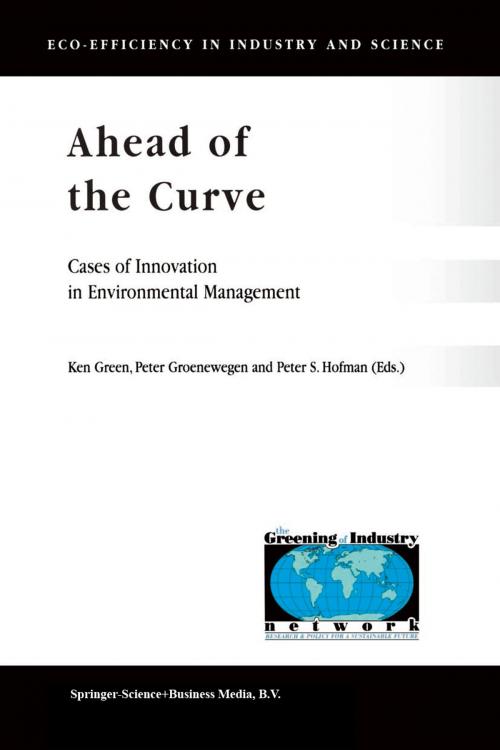Ahead of the Curve
Cases of Innovation in Environmental Management
Nonfiction, Science & Nature, Technology, Environmental, Business & Finance, Management & Leadership, Management, Nature| Author: | ISBN: | 9789401009089 | |
| Publisher: | Springer Netherlands | Publication: | December 6, 2012 |
| Imprint: | Springer | Language: | English |
| Author: | |
| ISBN: | 9789401009089 |
| Publisher: | Springer Netherlands |
| Publication: | December 6, 2012 |
| Imprint: | Springer |
| Language: | English |
The debate on sustainable production often ends in discussions on the feasibility of far-reaching changes in relation to the competitiveness of companies. Industry itself and policy-makers tend to back away from engaging in profound processes of industrial transformation. Examples of companies who have voluntarily moved beyond what is seen as 'reasonable' and 'feasible' can overcome this deadlock. This book collects a fine sample of companies who have taken up their responsibility in this respect. To quote the editors of this book: "They are cases that might provide other firms and policy-makers with ideas for innovative environmental responses that are outside the slowly rising trend of improvement that we are currently observing: in short, the cases are of firms and ideas that are ahead of the curve". The editors and many of the authors of this volume are members of the Greening of Industry Network and have been debating with one another for years. Founded in 1991, the Greening of Industry Network comprises over 1500 individuals representing academia, business, public interest, labor and government from more than 50 countries. Participants work together to build policies and strategies toward creating a sustainable future through many vehicles -- coordinating research efforts, publications, planning and participating in workshops, public forums and conferences. To provide benefit to broader society, the Network stimulates public dialogue and brings together academic researchers from many disciplines with other stakeholders who traditionally do not work together in coalitions.
The debate on sustainable production often ends in discussions on the feasibility of far-reaching changes in relation to the competitiveness of companies. Industry itself and policy-makers tend to back away from engaging in profound processes of industrial transformation. Examples of companies who have voluntarily moved beyond what is seen as 'reasonable' and 'feasible' can overcome this deadlock. This book collects a fine sample of companies who have taken up their responsibility in this respect. To quote the editors of this book: "They are cases that might provide other firms and policy-makers with ideas for innovative environmental responses that are outside the slowly rising trend of improvement that we are currently observing: in short, the cases are of firms and ideas that are ahead of the curve". The editors and many of the authors of this volume are members of the Greening of Industry Network and have been debating with one another for years. Founded in 1991, the Greening of Industry Network comprises over 1500 individuals representing academia, business, public interest, labor and government from more than 50 countries. Participants work together to build policies and strategies toward creating a sustainable future through many vehicles -- coordinating research efforts, publications, planning and participating in workshops, public forums and conferences. To provide benefit to broader society, the Network stimulates public dialogue and brings together academic researchers from many disciplines with other stakeholders who traditionally do not work together in coalitions.















